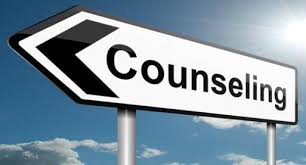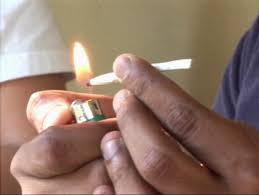Rehab Articles

alcohol abuse, drug abuse, counseling
Alcohol abuse may be helped by a brief period of counseling but this is not the case with drug abuse according to a new study by Boston University. For more than 10 years the Substance Abuse and Mental Health Services Administration, an agency of the United States federal government, has recommended substance abuse screenings and brief periods of counseling for alcohol and drug abuse. According to the Boston University study the results of these recommendations are somewhat surprising. The approach used was often effective for individuals who engaged in alcohol abuse, but the effectiveness dropped sharply when drug abuse was studied.
According to Dr. Richard Saitz, the leader of the study and the Boston University School of Public Health community health sciences chairman, “Brief counseling can work for a lot of things, but we found no evidence to support the widespread implementation of universal screening and brief intervention for illicit drug use or prescription drug misuse. In retrospect, drug use is a complicated problem. While there might have been some hope that something as simple as this would work, it now appears it doesn’t. People who are using drugs and admit to using drugs are already doing something not socially sanctioned, so getting them to change their behavior may be harder.” Saitz went on to state “Despite many reasons to not use, they are continuing to do so. A few minutes of counseling is not going to change that. Because each drug is different a universal intervention is especially difficult. What works to address marijuana use may not work to stop heroin injecting, for example. One-time brief counseling is simply inadequate to address these complexities, even as an initial strategy. Even with alcohol use multiple interventions have been more successful than one-time sessions.”
Rehab Articles

alcohol commercials, underage drinkers
Recent research has shown that underage drinkers are usually strongly affected by alcohol commercials. According to the study underage drinkers were 300% more likely to pick brands of alcohol which they had previously seen alcohol commercials for. The study was conducted by the Center on Alcohol Marketing and Youth, which is at the Johns Hopkins Bloomberg School of Public Health, and the Boston University School of Public Health. David Jernigan, Ph.D, and the CAMY director as well as one of the authors of the study, reported that “There is a link between exposure to brand-specific advertising and youth choices about alcohol, independent of other factors.” The lead study author and the Virtual Media Resources President, who also has an MBA and Ph.D, Craig Ross, stated “Taken together, these studies strengthen the case for a relationship between brand-specific alcohol advertising among underage youth and brand-specific consumption. As alcohol continues to devastate so many young lives, youth exposure to alcohol advertising should be reduced.”
More than 1,000 individuals who were aged 13 years old to 20 years old took part in the study on underage drinking and exposure to alcohol commercials, and this exposure occurred in magazines as well as on television commercials. The study showed that underage drinkers were more likely to remember the brands and products that were featured in alcohol commercials that the teens were exposed to. Boston University School of Public Health researcher Michael B. Seigel, who holds an MD and MPH and who co authored the recent study, observed that “The question now becomes what do alcohol advertisers do with this information, given the consequences of alcohol consumption in underage youth.”
Rehab Articles
A study performed in collaboration between Boston University School of Medicine and the University of Cambridge in the UK was recently published in the online version of the journal Neuropsychopharmacology, and this study shows that there may be a link between food addiction and impulsive behavior. A number of research studies have shown that healthy people tend to be less impulsive in general, but it is not certain whether the food addiction or other eating disorder causes the impulse problems or if it is a result of impulsive behavior instead. BUSM pharmacology and psychiatry associate professor Pietro Cottone, PhD, who also happens to be the co-director of the Laboratory of Addictive Disorders, explained. “While impulsivity might have aided ancestors to choose calorie-rich foods when food was scarce, our study results suggest that, in today’s calorie-rich environment, impulsivity promotes pathological overeating.”
Food addiction is a growing problem across the world, and impulsive behavior is also becoming a common trend as well. When you have poor impulse control you are more likely to give in, and this includes where food is concerned. The reward center of the brain is stimulated by the food consumption when you suffer from a food addiction, the same way that someone who is addicted to heroin gets high when using the drug. Eating makes the individual feel good, and they may have difficulty regulating their food intake as a result. Further studies may help identify the causes of the link more clearly.
Rehab Articles

teen substance abuse, teen alcohol and drug use
1. Talk to Your Teen- Talking with your teens can help prevent teen substance abuse. Discuss teen alcohol and drug use with your adolescents, even if it seems like they are not listening to you. Studies have shown that the message does get through even if you do not think you are making a difference.
2. Research Early Prevention Programs- Early prevention programs can drastically reduce teen substance abuse. Many programs show the positive side of staying sober, and this can help combat social media posts and other pro substance abuse messages that teens may come across.
3. Set a Good Example- The old saying do as I say not as I do does not work. Set a good example for your teens by showing them how to have fun and be responsible citizens without engaging in teen alcohol and drug abuse by avoiding these behaviors yourself. If you drink or use drugs then this sends a message that this behavior is acceptable.
4. Set Clear Rules and Consequences- Let your teens use you as a scapegoat against peer pressure. Set very clear rules, and make sure that your teens understand the consequences if these rules are broken. This gives them an out when friends are trying to pressure them into teen alcohol and drug use, and you can be the bad guy with their peers so they save face.
5. Look for Signs of Teen Substance Abuse- Stay vigilant and watch for any signs of possible teen substance abuse. Many parents perform home drug screens on their children so that any teen alcohol and drug use is discovered as early as possible.
Rehab Articles

binge drinking, teen alcohol abuse
Teen alcohol abuse, and binge drinking among all ages, are big problems but a new report by the American College of Emergency Physicians show that sending text messages to the individual after they have had an Emergency Room visit can be beneficial and help lower the risk of binge drinking and teen alcohol abuse. Researchers found that adolescents and young adults who were seen in the ER and who had a positive history for alcohol abuse were more than 50% less likely to engage in dangerous drinking when they received follow up text messages the next day.
According to University of Pittsburgh School of Medicine physician Dr. Brian Suffoletto “Each day in the U.S., more than 50,000 adults ages 18 to 24 visit ERs and up to half have hazardous alcohol use patterns. More than a third of them report alcohol abuse or dependence. The emergency department provides a unique setting to screen young adults for drinking problems and to engage with them via their preferred mode of communication to reduce future use.” Dr. Suffoletto went on to say “Illicit drugs and opiates grab all the headlines, but alcohol remains the fourth leading cause of preventable death in the U.S. If we can intervene in a meaningful way in the health and habits of people when they are young, we could make a real dent in that tragic statistic. Alcohol may bring them to the ER, but we can do our part to keep them from becoming repeat visitors.” The report and underlying study was published in the online version of the Annals of Emergency Medicine.



